Description
ABSTRACT
Factoring Economic Approach into Environmental Protection in Nigeria
Dr. Gina Elvis-Imo*
The economic approach to environmental protection addresses environmental challenges not by prohibiting the polluting activity, but by discouraging such activities through the use of economic incentives and disincentives. While a regulatory approach to environmental protection may be indubitably indispensable, because for one, it is by the setting of entitlements that we know who possesses what rights and how such rights are to be protected, there is nevertheless a necessary synergy between the regulatory approach and the economic approach to environmental protection. This paper therefore explores the synergy between both approaches. It further discusses the need to set entitlements as well as the protection of such entitlements, without which society may operate on the basis of ‘might makes right’. However, it is thought that a regulatory approach (represented by the command and control strategy) alone may not adequately address the environmental challenges currently facing humanity. The use of economic instruments would no doubt provide the necessary incentives and disincentives to would-be-polluters to pollute less. It is however not supposed that an economic approach would be a pinch hitter (replacement) for a regulatory approach, but a necessary complement to it and both can be used in tandem.
INTRODUCTION
Environment is the external conditions or surroundings, especially those in which people live or work; the external surroundings in which a plant or animal lives which tend to influence its development and behaviour.1Environment, according to the Black’s Law Dictionary2 is:
The totality of physical, economic, cultural, aesthetic and social circumstances and factors which surround and affect the desirability and value of property and which also affect the quality of people’s lives. The surrounding conditions, influences or forces which influence or modify.
Section 37 of the National Environmental Standards Regulations Enforcement Agency (NESREA) Act3 2007, defines environment to include water, air, land and all plants and human beings or animals living therein and the inter-relationships which exists among these or any of them.
Section 61(1) of the Environmental Impact Assessment Act4 defines environment as follows:
Environment means:
a. Land, water and air, including all layers of the atmosphere;
b. All organic and inorganic matter and living organisms; and
c. The interacting natural systems that include components referred to in paragraphs (a) and (b).
* Ph.D., BL. Senior Lecturer, Faculty of Law, Niger Delta University, Bayelsa State.
- Collins English Dictionary, (1985 Edition).
- Garner B, Black’s Law Dictionary (5th edition, 1979).
- Cap N164 Laws of the Federation of Nigeria 2010.
- Cap E12 Laws of the Federation of Nigeria 2010.

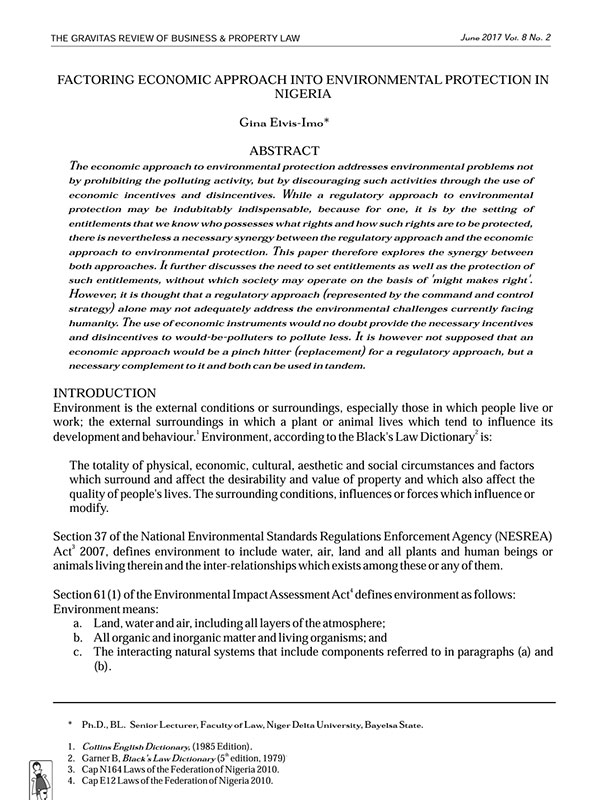
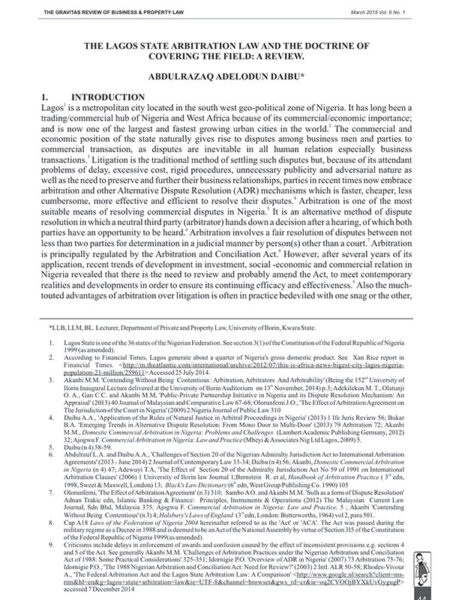
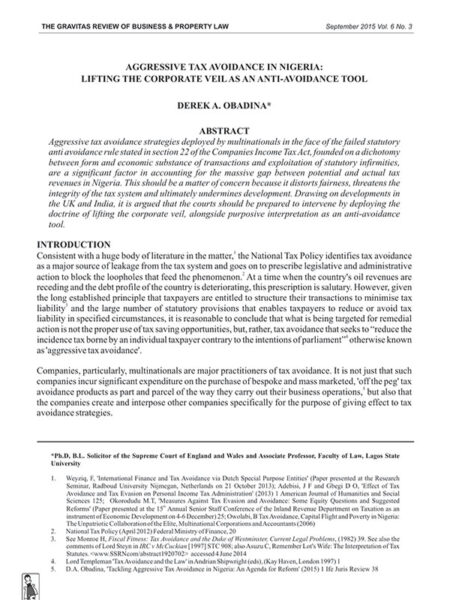
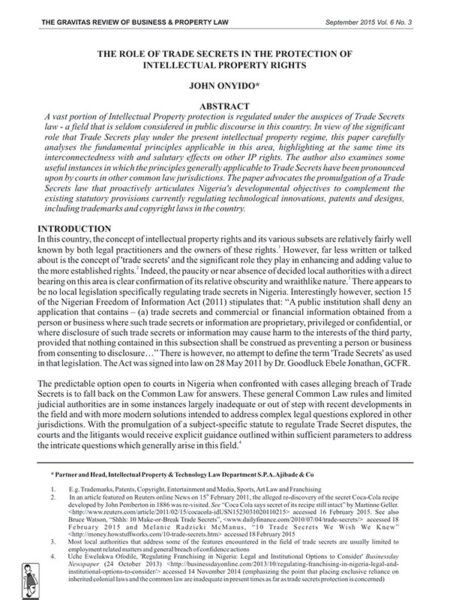
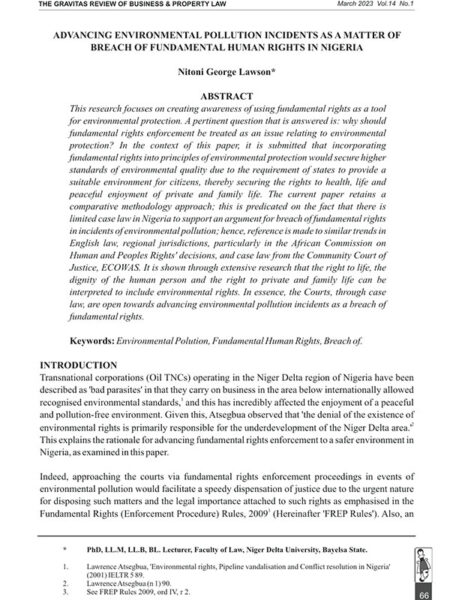


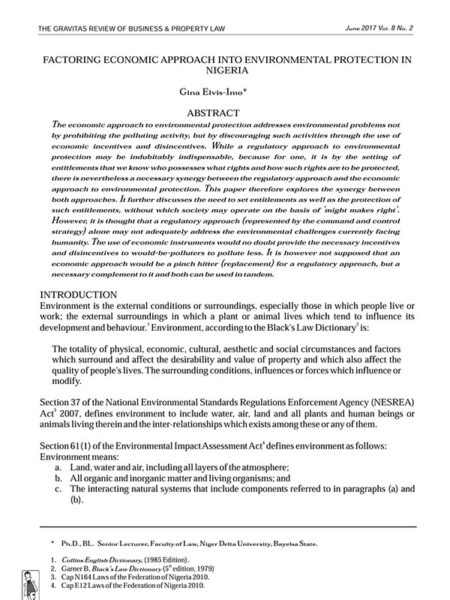
Reviews
There are no reviews yet.